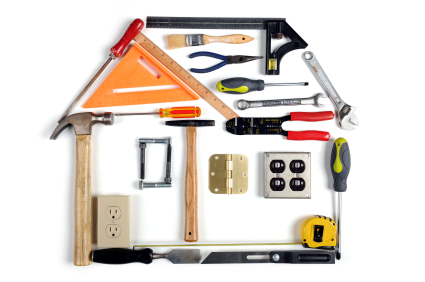
In Part 1 of our series we discussed all the things that typically need to be done to maintain a home. In Part 2, we noted that you would have to complete an average of 8-10 tasks per day to get it all done. That may have been no problem for June Cleaver, but today so many people work outside the home, volunteer, fundraise for charities and schools, coach sports teams, drive children around, exercise, travel, entertain, socialize, and so much more. No single person can possibly accomplish all that cleaning and still have a life. The risk you run of choosing not do anything? Buildup of soap scum, mildew or mold that requires more work, more powerful (and possibly dangerous) cleaning chemicals to remove and which can lead to permanent damage and deterioration of your home. So, here, in our final installment, we look at when and how to outsource or delegate cleaning work and using modern technology to manage it all.
A biweekly or even monthly outsourced cleaning service is a great investment to maintain the home’s value over time, however, if you’re not quite ready for regularly scheduled cleaning services, some other outsourcing options you might consider include:
- Quarterly ‘catch-up’ cleans. Say, for example, that you have a difficult time keeping up with daily and weekly cleaning tasks. You might consider a professional catch-up clean once every three months to bring your home back up to a more easily maintainable standard of clean.
- Spot cleans. For big specific jobs like deep cleaning your refrigerator or oven, windows, or that semiannual wash down of walls and ceilings, consider using professional teams to complete the work quickly. There will be less disruption to your household routine and you will preserve precious weekend and vacation time.
Where you don’t outsource cleaning tasks, it’s time to delegate among your family. But you also need to ensure that the time and mental energy you save on cleaning doesn’t simply transfer into time spent cajoling your family members into completing their chores. Here are some delegation strategies that really work:
Empower. First, give everyone a say – into which tasks they take on and, more important, as to how they will complete them. You may not love the way someone folds towels or loads the dishwasher, but just take a deep breath and let – it – go.
Motivate. Think about what motivates each person individually. For example, your eight-year old might be motivated by tasks that make her feel grown up such as operating the dishwasher, washer and dryer. Your fifteen-year old will be motivated by things you can do for him in return, such as driving him and his friends to the movies or providing pizza for his pack when they come over to play video games and watch football games. Your 17-year old, meantime, will be motivated by privileges – a later curfew, opportunities to borrow your car, and so forth – that you can link to regular and prompt completion of her chores.
Rotate. Since not all cleaning tasks are created equal (scrubbing toilets versus dusting lamps, for example), rotate less palatable chores among family members – yourself included.
Keep score and bestow a privilege or incentive on the person who completes the highest percentage of his or her chores without being reminded in a given week. Perhaps they get to give away one task for the following week to the low scorer, control the TV remote for a week, or dictate the family’s dinner menu on Thursday night.
Use peer pressure. Create a group incentive – like a family favorite dinner, movie, restaurant outing or other activity – if the group as a whole scores 100%. No one will want to be responsible for the group missing out on its weekly treat.
Use technology. Modern technology options fit fluidly into the lifestyles of today’s children, teenagers, and on-the-go parents. Why nag your teenage son to make his bed, pick up his clothes, or remove pizza boxes from his room when his email account, iTouch, or mobile phone can do it for you? One thing is for certain: He will be paying attention to his devices and won’t be able to claim he forgot to complete a task.
One easy technology approach is to open free Gmail accounts for each family member (if they don’t already have them) and use Google Calendar to create and share a dedicated family cleaning calendar – complete with regular automated task reminders. Or, if you prefer the gratification of checking tasks off a to-do list, Remember the Milkis great task scheduling and tracking service from which you can assign tasks to different people and send automated reminders by IM, email, and even text message (on certain networks).

